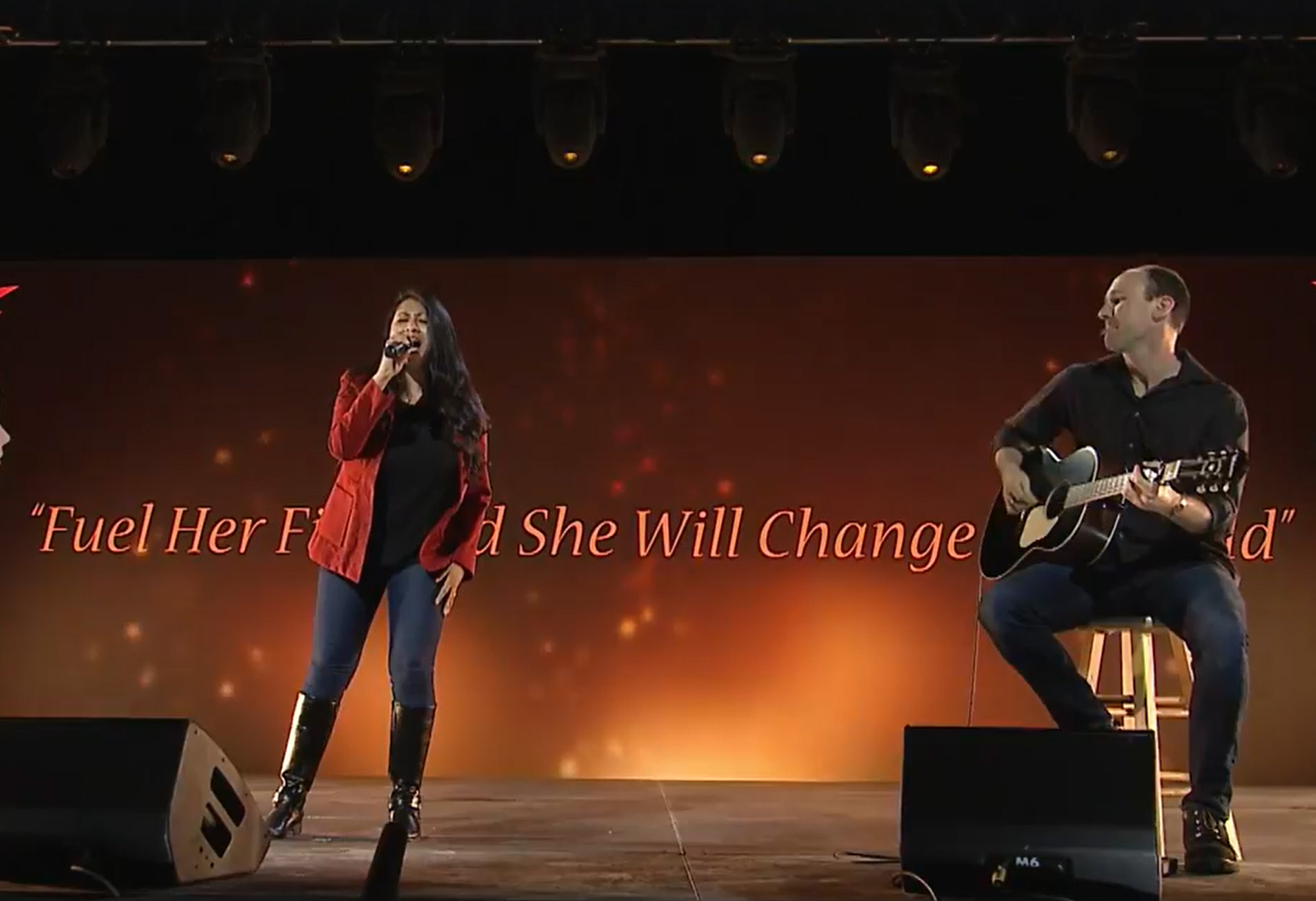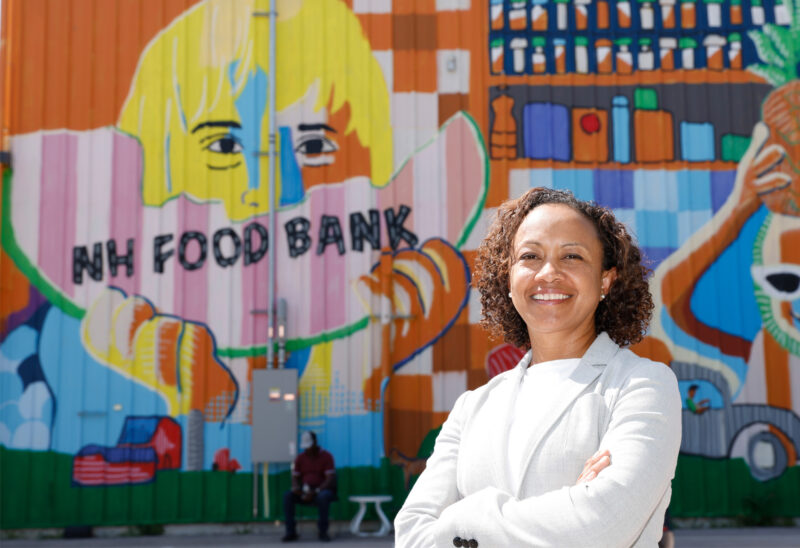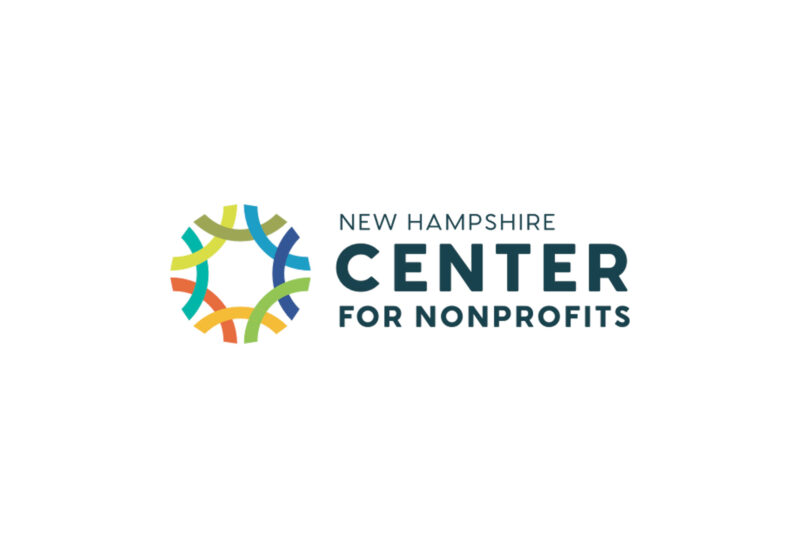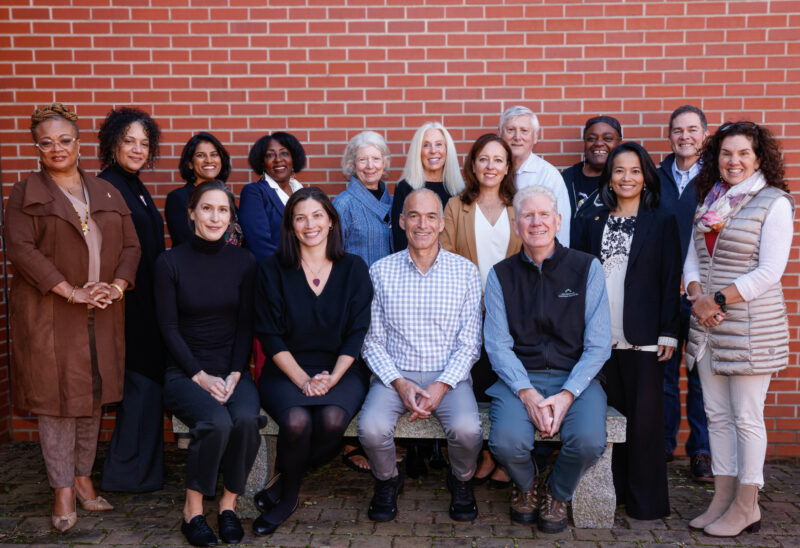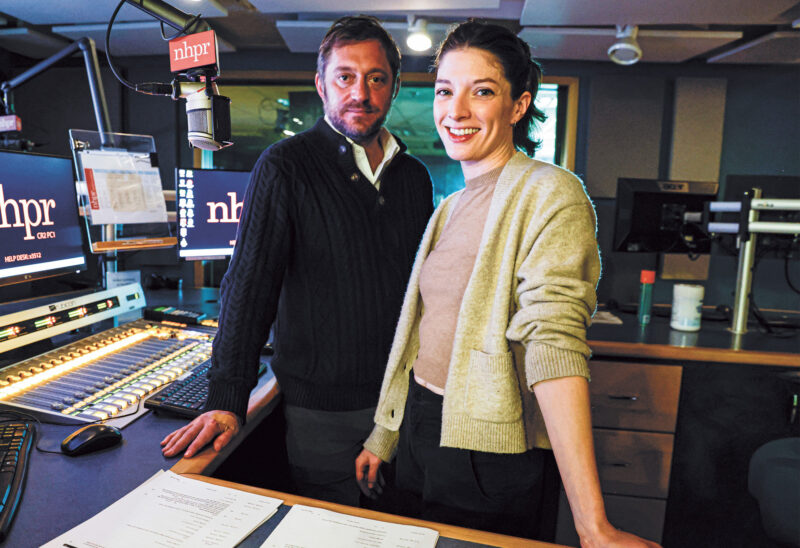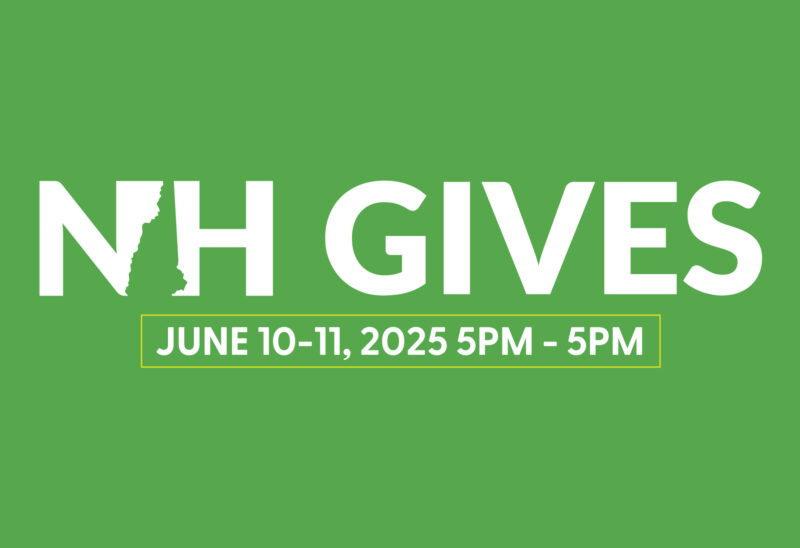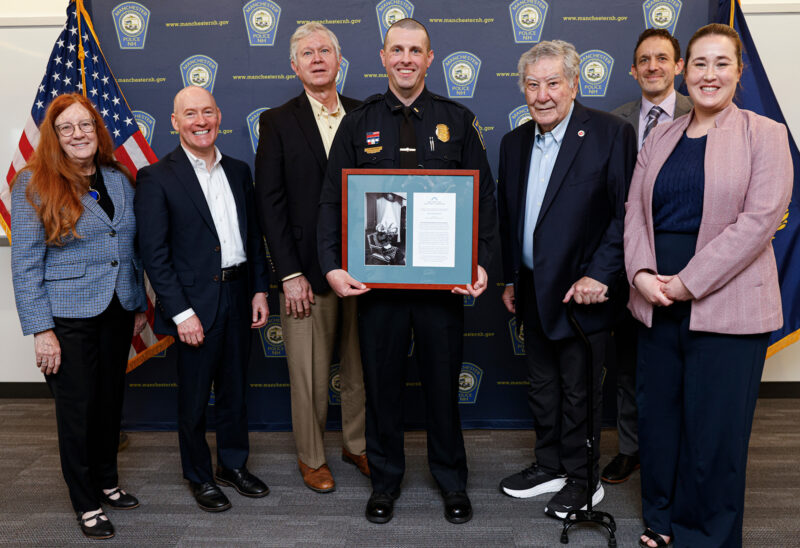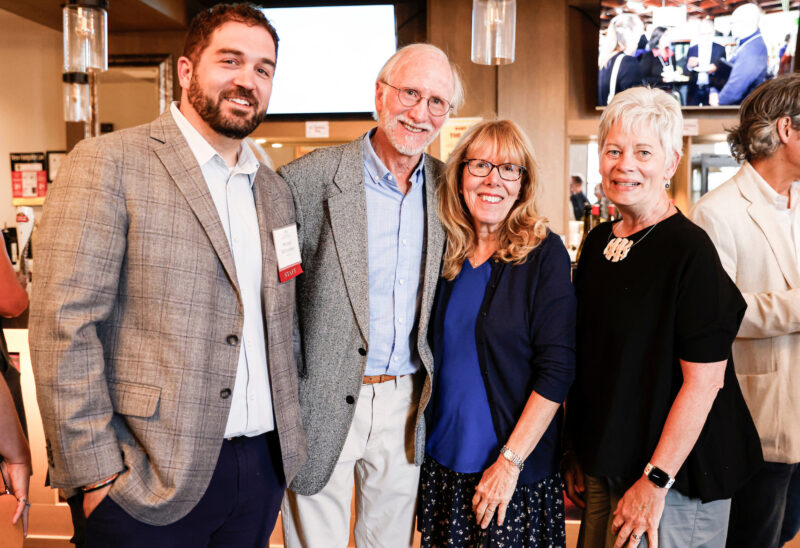It was late March. Organizers of the annual Girls Inc. of New Hampshire fundraiser were discussing their brand-new game plan. They already had canceled their annual live auction because gatherings of more than 50 people had been banned to help slow the spread of the coronavirus.
CEO Sharron McCarthy and her team decided to live-stream an auction with no live audience. With the clock ticking and their revamped event a couple of weeks away, they were sitting around a table to nail down details. That’s when they learned that non-essential businesses were ordered closed and residents directed to stay home.
“So, for the second time, we were like, ‘Oh no,’” McCarthy said. “I think our jaws kind of hit the table. ‘What the heck do we do now?’”
What Girls Inc. and many other New Hampshire nonprofits did this spring was refocus, quickly, to produce online events — going virtually into people’s homes because home-bound audiences couldn’t come to them.
They made music, made soup, made breakfast, made videos, made tracks and ended up making money so they could continue providing shelter, food, comfort, education and the arts to their communities.
Many nonprofits plan for months for major fundraisers in the spring — which coincided with the emergence of the pandemic and stay-at-home orders. Many nonprofits saw demand for their services increase dramatically and income sources decrease at the same time. Not all attempts to pivot to online events were successful, and not all events are adaptable.
The Washington-based 20 Degrees, which helps nonprofits attract revenue, has created a comprehensive event checklist designed to help organizations decide whether to postpone, cancel or move events online. Prosper Strategies, in Chicago, offers a webinar entitled: Pull Off a Virtual Fundraising Event in the Age of COVID-19.
New Hampshire nonprofits who have pulled off successful online fundraisers tell stories of quick adaptation, creativity persistence — and some luck.
Girls Inc. was able to produce its online auction in April because its production company stayed open as an essential business. They streamed the event on Facebook and YouTube, raising $175,000 from the auction and generous sponsors.
Instead of its typical audience of about 350 people, the online fundraiser reached a wider audience of at least 1,700 who donated or learned more about how Girls Inc. helps girls to master physical, intellectual and emotional challenges.
“Not all gave a donation,” McCarthy said, “but it was an extra 1,400 people who watched us or saw the Girls Inc. image.”
In Concord, the Concord Coalition to End Homelessness holds its SouperFest fundraiser — in which volunteers bring soups to a community dining event — every spring. It is the group’s largest fundraiser.
The Coalition transformed the event several weeks before the March 28 date, then began promoting it heavily on social media, email, its newsletter and a press release.
Sponsors, who already had donated about $50,000, stayed on board. The Coalition raised another $5,000 through “ticket” donations.
Instead of delivering soup to a single location, participants posted or emailed photos of soups, recipes or good deeds, like delivering soup to a neighbor in need.
The event was a success, thanks to an uplifting video streamed during the original event time, loyal sponsors, plenty of publicity and the virtual community that stretched far beyond the Concord area.
“When we transformed the event from SouperFest to #SouperFest, we immediately started to promote the ‘#SouperFest’ hashtag via our email newsletter and social media posts,” said Chief Operating Officer Leslie Fincke. “The hashtag symbol really helped transition the event in people’s minds.”
On the Seacoast, Portsmouth-based Haven promoted its virtual Kids Are Our Business Breakfast on its Facebook page for two weeks, sharing recipes and corny jokes to get supporters “egg-cited.”
Development Director Devin Oot said committed sponsors stayed on board, and while the group was not able to attract new sponsors, they netted nearly the same amount because costs were lower. During the virtual meal, participants asked questions via Zoom and Facebook.
Haven didn’t stop at breakfast.
Denim Day, April 19, holds special meaning for sexual assault awareness. It came about after the Italian Supreme Court overturned a rape conviction, essentially blaming the victim for wearing tight denim jeans. The following day, women in the Italian Parliament wore jeans in solidarity.
This year, recognizing everyone’s new Zoom-appropriate attire (sweatpants or PJ bottoms with a nice shirt or blouse), Haven held a virtual Denim Day to support a serious cause with a light-hearted challenge for people to wear jeans and donate $5.
“We made almost $2,000 in $5 donations,” Oot said.
And, a theater director who produced a previous fundraising show for Haven called to say the program had been professionally recorded. Haven live-streamed the old show with a new intro this month and raised another $3,500.
“We are taking a couple of steps back from major-donor giving and doing grassroots fundraising,” Oot said. “Every donation counts.”
New Hampshire nonprofits have gotten creative: from an Easterseals virtual comedy night on May 7 to a live-stream of a yoga class to benefit Willing Hands, which distributes food that otherwise might go to waste in the Upper Valley.
And the perennial spring fundraiser, the benefit walk/run has gone virtual:
The Families in Transition/New Horizons New Hampshire: Walk Against Hunger will be held virtually, on May 17. The New Hampshire SPCA’s Paws Walk Reimaged will be on June 14. Supporters of the Krempels Center in Portsmouth, which serves brain injury survivors, can run, walk or skip 5K anywhere during the week of May 17-24.
In Hanover, three sisters who are part of the nonprofit Positive Tracks raised more than $27,000 to benefit the D.C.-based Center for Disaster Philanthropy’s COVID-19 Response Fund. Georgia, Amelia and Sophia Lubrano attracted more than 700 participants around the country, who ran or walked any distance, solo, then celebrated on social media.
With three weeks’ notice, the Portsmouth Music and Arts Center, PMAC, turned its Spring Fever for the Arts fundraiser into a virtual event. A three-minute video that was to be part of the live auction event became a compelling 40-minute Facebook and You Tube program featuring safely-spaced students, parents, donors, faculty, board members and performers.
Director of Development Judy Pinkham said they developed the new plan within days of realizing they would have to cancel their live event.
“There was a lot of, ‘We can’t believe this is really happening,’” Pinkham said. “Not ‘woe is me,’ but ‘What is happening to our world and how do we best continue what everybody looks forward to?’”
PMAC’s sponsors remained and the group raised $44,000 of its revised goal of $50,000, half its original target. But, as with other groups that went virtual, expenses were reduced dramatically, so the event was a financial success and reached more people online than the 200 who would have attended a live event.
(PMAC also enlisted high-profile help. Al Barr, of the Dropkick Murphys, is a PMAC parent and has been a guest instructor. He shared word of the virtual event with the group’s fans around the world.)
Pinkham said PMAC briefly considered cancelling, but didn’t because of the uncertainty of when they could reschedule and how the hit to their budget might start a ripple effect.
“This is a good time to take some risks and look at things totally differently,” she said. “People get excited about new things and I think it’s good to shake it up sometimes.”
“I say, ‘If you can do it now, in a creative way, go for it,” she said.
But she’d rather not make it a habit.
“We are so proud of it. It was a good show, but I never want to do that again because I hope we can gather together,” Pinkham said.

